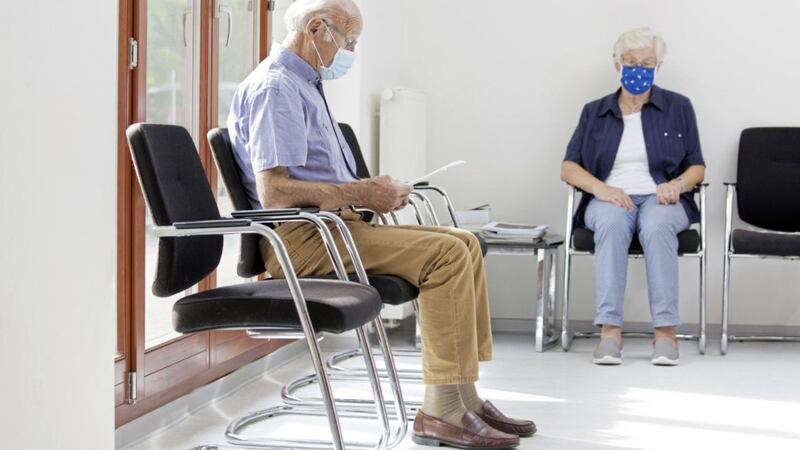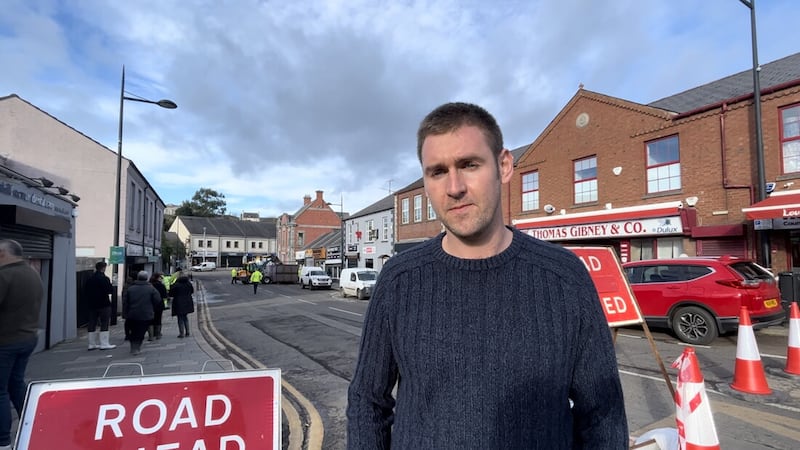HEALTH minister Robin Swann has asked executive colleagues for a long-term commitment to ring-fence the money needed to tackle waiting lists as new figures reveal a worsening crisis.
More than half (56.6 per cent) of patients were waiting more than a year for a first consultant-led outpatient appointment - compared with 38 per cent the same time last year.
Under targets, at least 50 per cent of patients should wait no longer than nine weeks, with with no one waiting a year or more.
In total 446,251 people are waiting for either a first outpatient appointment with a consultant, or an inpatient or day case admission.
Surgeons described the figures as "shocking" and published an `action plan' featuring an expansion of `Covid-light' hospital sites and regional surgical hubs, to help tackle the backlog.
Northern Ireland director of the Royal College of Surgeons Mark Taylor said it had been "a brutal start to the year" with the cancellation or postponement of "many procedures, including cancer operations" to treat seriously ill Covid-19 patients.
"It is heart-breaking as a clinician to have to tell patients that they may be waiting many more months, if not years for the treatment they need. It's easy to see why some are turning to private providers."
Dr Tom Black from the BMA said the numbers would only get worse as more patients were added to an overwhelmed system "relying on a workforce that is exhausted and burnt-out".
"We will not be able to address our waiting list crisis and deliver HSC transformation when we don't have enough doctors to treat patients and those that remain are contemplating early retirement due to fatigue or poor wellbeing. HSC staff and patients deserve better," he said.
Mr Swann agreed the length of the lists was undermining "the principle of being free and available at the point of need" on which the health service was built.
His own new elective care framework is being "finalised" with actions to tackle the crisis with "a specific ask of the executive to commit recurrent targeted funding for waiting times over a number of years - sustained investment over and above day-to-day health spending".
He acknowledged getting the plan signed off will be an uphill task with all departments "under growing financial pressure" and would necessitate "difficult choices elsewhere".
"I believe that we have no choice. We cannot tolerate thousands of our citizens being stranded on ever growing waiting lists," he said.
Mr Swann said he was planning a reorganisation of services to "ensure this backlog never occurs again". But he warned the same resources put into the Covid-19 crisis would not be available.
SDLP finance spokesman Matthew O'Toole said his party would work with the finance and health ministers "on a strategy for long term systemic transformation in our health service, including proper budgeting and multi-year investment".
There have been marginal improvements since the end of last year, with five per cent fewer patients waiting for a diagnostic test - although still 6,195 more than the same point in 2020.
There are still more than two-fifths waiting longer than the 26-week target, a 10 per cent increase on the year before, but slight improvement on the 40 per cent at the end of 2020.
Urgent diagnostic test results were reported within the two-day target in 84.3 per cent of cases, with the western trust achieving a 93.3 per cent turnaround, compared to between 76.7 per cent and 85.0 per cent of urgent tests within two days in other trusts.








